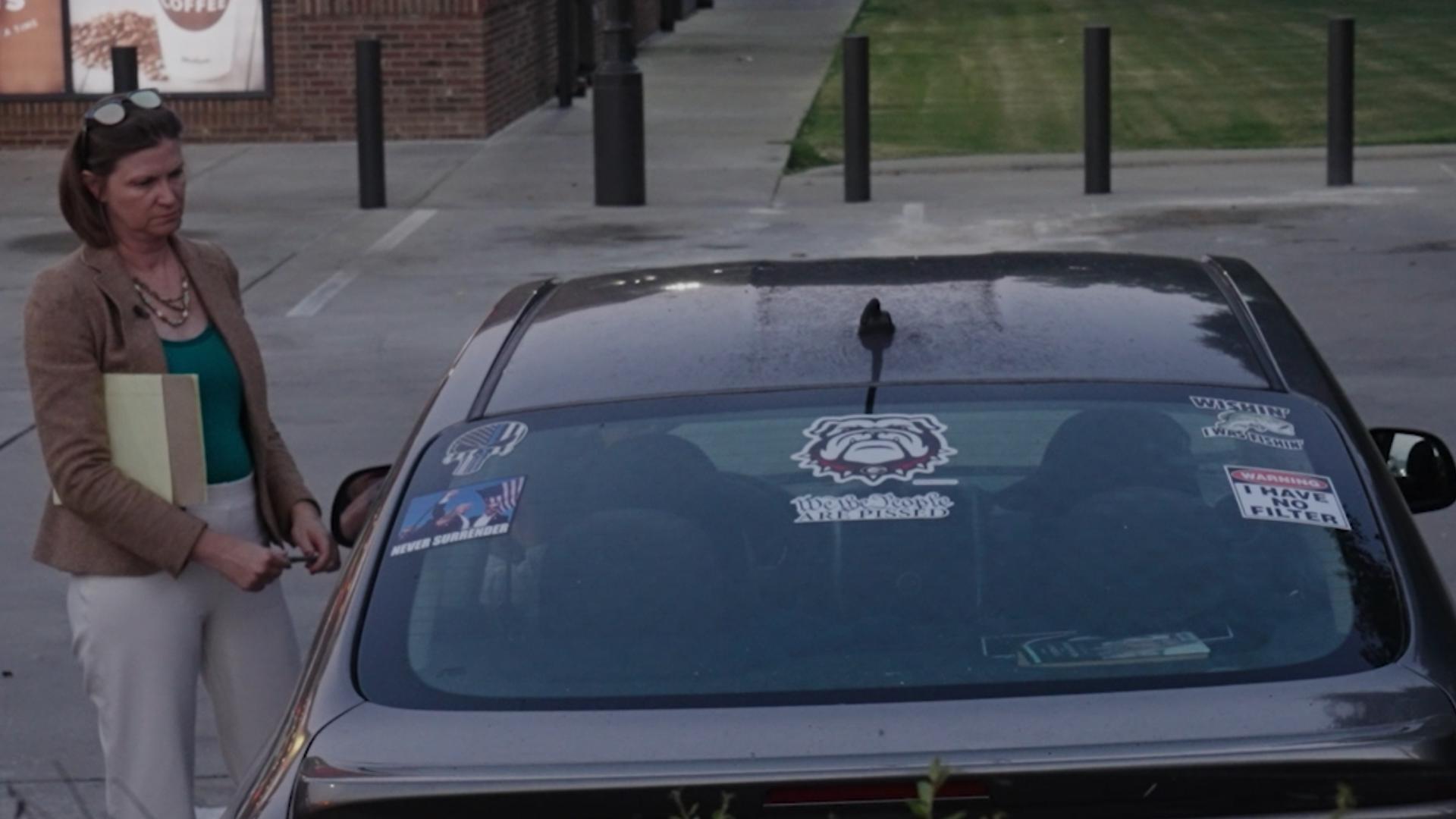PAULDING COUNTY, Ga. — Many parents pay close attention to where sex offenders are living in their area, but the addresses listed don’t always go to the types of residences one would expect.
11Alive Investigates started asking questions after a group of people in Paulding County pointed to several men registered at a Kroger grocery store in their neighborhood. After studying the list, we noticed sex offenders across the state registered to addresses connected with other businesses like Waffle House, Macy’s, a car wash, and several gas stations.
11Alive Senior Investigative Reporter Rebecca Lindstrom and photojournalist Michael Botsford went to several of the addresses in Hall and Paulding counties to see if the people listed really showed up.
They did. They were sitting in cars, watching TV or talking on their phones.
“They don’t have a residence, so their car is their home. And where they park their car is where they register,” explained Maj. Ashley Henson with the Paulding County Sheriff's Office.
They can’t just park anywhere. They need to find a parking lot that will allow them to be there or at least be willing to look the other way. It must also be at least 1,000 feet away from a childcare facility, school, church, or playground, and it must be a location they will go to every night until they register another address.
11Alive Investigates spoke with several of the people parked in various business lots who said they were on parole and had a curfew. They were required to be in their car during those hours, which usually ran from 6 p.m. to 6 a.m. One person worked a night job, so his curfew was during the day.
Four people were registered at a car wash, but only three cars were there. It's unknown if that fourth person had different curfew hours. At a nearby gas station, both of the men registered to the location were present.
11Alive Investigates also went on an address verification check with Paulding Sgt. Brett Whritenour, who heads the sex offender unit for that county. Initially, it appeared the man Whritenour went to find was gone, but within a few minutes, he appeared at the parking spot he tended to use.
"When I was driving around, he spotted me, and then he came back to where his (usual) sleeping location is,” explained Sgt. Whritenour. Apparently, the man was in the same shopping complex but around the corner getting food.
One man told us he could leave to use the restroom, but he needed to text his probation officer first. That’s why many of the men we met said they chose to be near businesses that had food and restrooms available.
Some of the addresses were also tied to nearby encampments.
Almost all of the people 11Alive Investigates spoke with said they had a job, but couldn’t find traditional housing because the places they could afford were close to a school, park, or church.
One man said he’s been living in various parking lots for the past five years and has three more years to go before his probation ends in 2027.
Henson says the sheriff’s department in every county must verify a sex offender’s address each year, but it is their practice to verify addresses three times per year. He plans to increase that to four times per year when he takes over as sheriff in 2025.
If the offender is on parole, that department will also check on them monthly.
The men we talked with seemed to understand the rules. One told us, “They don't really give you a certain time… I don't know when they're going to show up. You don't even know what kind of vehicle they're driving.”
While it might seem unsettling to some to have a sex offender registered to a business, Henson says it gives the public more information than just marking them as homeless.
“If you say they're homeless, then where are you going to go to find them? So, we require that they have some place, and I would rather know where they are,” said Henson.
11Alive Investigates reached out to several of the businesses associated with addresses in the registry. Most didn’t comment, but no one seemed surprised.
“Some of the people who get out of jail who are on the registry list have, I guess, decided they can register this as their home address. They’re not supposed to, but they still do it,” said Cody Gray, an employee at one of the gas stations that had three people listed at it. “We can tell them to leave and they’ll leave,” he added.
If they don’t, Gray said the manager contacts police. 11Alive checked a month after that conversation, and indeed, all of their offenders once registered there were located somewhere else.
Even if offenders show up, we discovered, that doesn’t mean they stay.
We met a 73-year-old man who said he still had the house he and his wife owned before he went to prison. Legally, his parole conditions don’t allow him to live there. But when it’s cold or he’s having medical problems, he said he goes home anyway.
“They come telling me, ‘why don’t you sell?’ I said you want to keep up with me that bad? You find me a place and you pay for it,” the man explained.
We have no idea where he went on the night we were watching, but by 10:30 p.m. both he, and another man once parked in that lot, were gone. We waited for more than an hour to see if either would return.
Henson admits, the registry has its limits.
“It's going to let you know where they're supposed to be. I mean, it's just like a fence or a gate. It's only going to keep an honest person out,” he said.

